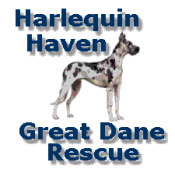|
Skin Allergies
Dogs are commonly bothered by allergies.
Certain breeds such as terriers, cockers, beagles, golden retrievers and
Dalmatians are predisposed to allergies. Allergic dogs do not sneeze or
have runny noses like people do. Dogs with allergies have symptoms of
excessive itching and scratching of their feet, ears, belly, or any
reachable area. Left untreated, the itchy sensation and inflammation of
the skin is likely to lead to self-trauma by the rubbing, licking and
chewing. This can subsequently result in extensive and severe damage to
the skin and infection.
Allergies are caused by allergens For
dogs their are three main types of allergens: Inhaled substances
(pollen, mold, dust), certain ingredients in foods, and flea saliva.
Once your pet is exposed to an allergen, a sensitivity is established,
causing all future exposures to the allergen to cause an inflammation
reaction.
The most common allergy is the result of
flea bites. The pet becomes allergic to the protein in the saliva of the
flea. This reaction can occur after only one flea bite. Many times, no
fleas will be on the pet when examined, however, the intense biting and
itching occurring near the base of the dogs tail is a giveaway.
Allergic reactions to inhaled substances
begin to appear at 6-24 months of age. Usually, the first experience
with an inhalant allergens coincides with plant pollination. In time,
however, seasonal patterns may be lost as the patient becomes sensitive
to dust and other materials. Ragweed and grasses are among the most
potent pollens causing allergies.
Food allergy is the least common but most
overlooked cause of allergies. Food allergic dogs develop this
sensitivity against a particular item in their diet. The most common
allergens in food are corn, meat, milk, whey, gluten, and soy. Dogs
suspected of being food allergic need to be placed on a hypoallergenic
diet for a minimum of 6-10 weeks and the response observed.
Hypoallergenic diets have novel food groups such as lamb and rice as the
main ingredients and lack any suspected allergens. Food allergies can
only be diagnosed by a food trial.
Inhalant allergies and flea allergies can
be confirmed by skin testing. In this test, very small amounts of the
allergens which are suspected to be bothering your pet are placed within
the skin. Based on the skin reaction, and history the veterinarian can
tell you which allergens are most likely bothering your pet, and treat
accordingly.
What
can be done to give my pet relief?
* Avoidance and reduction of allergens is
important. It is most helpful in food allergies. In inhalant allergies,
feathers, aerosols, and smoke are some examples of environmental
allergens that can be reduced or avoided.
* Medicated shampooing and oatmeal
conditioners used regularly help decrease itching and skin inflammation.
* Topical sprays, ointments, and creams
containing anti-pruritics, cortisone and anesthetics give some relief.
* Antihistamines-these may prescribed for
relief of symptoms during minor or short episodes.
* Corticosteroids- these are prescribed
for control of more severe signs. The relief can be dramatic. However,
their side effects limit these drugs to careful considered use.
* Hyposensitization- this method is
prescribed for those patients whose allergies are year round and whose
symptoms are not controlled by the use of antihistamines, or
corticosteroids in reasonable amounts. This procedure involves giving
small doses of the offending allergens to the patient in gradually
increasing amounts. After a period of time these allergy shots reduce
the sensitivity to the allergens without undesirable side effects.
In the treatment of allergic disorders,
therapy may vary widely from patient to patient. Owner participation in
the diagnosis and treatment is essential for success. It is important to
get proper medical attention as soon as the itch starts Prompt treatment
will stop the reaction and prevent the skin lesions from becoming more
severe.
All images and text on this site Copyright © 1998-2026 Harlequin Haven Great Dane Rescue, Inc. unless otherwise credited. Use of any image or text without written permission is expressly forbidden. All rights reserved.
|
